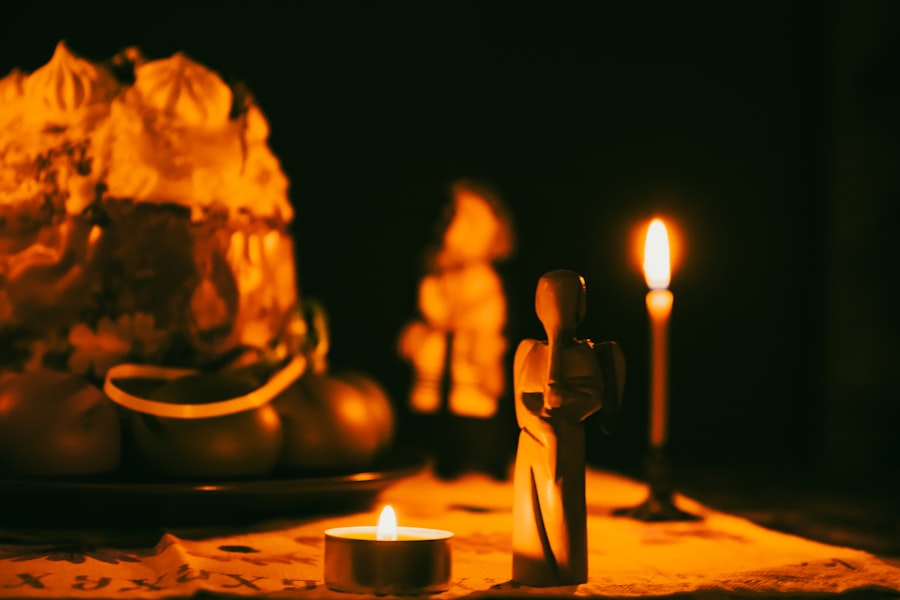Chickens require access to clean, fresh water for optimal health and productivity. During colder seasons, providing warm water becomes crucial. Cold water can lower a chicken’s body temperature, increasing susceptibility to illness and potentially leading to death.
When chickens consume cold water, their bodies expend more energy to warm it, which can result in decreased egg production and overall health. Additionally, chickens may drink less if the water is too cold, risking dehydration. Warm water also helps maintain a comfortable coop environment.
Chickens use water to regulate their body temperature, and providing warm water assists in keeping them warm during cold weather. This is particularly important for young chicks and older chickens, which are more vulnerable to cold temperatures. Ensuring access to warm water is essential for maintaining chicken health, comfort, and productivity, especially during winter months.
It helps prevent illness, supports egg production, and contributes to overall well-being in the flock.
Table of Contents
- 1 Choosing the Right Watering System for Your Chickens
- 2 Insulating Water Containers to Retain Heat
- 3 Using Heated Waterers for Cold Weather
- 4 Adding Warm Water Additives to Keep Water from Freezing
- 5 Monitoring and Maintaining Water Temperature for Chickens
- 6 Tips for Keeping Water Warm for Chickens in Extreme Cold Conditions
- 7 FAQs
- 7.1 What is the best way to keep water warm for chickens?
- 7.2 What temperature should the water be for chickens?
- 7.3 Are there any alternative methods to keep water warm for chickens?
- 7.4 How often should the water be checked and refilled for chickens?
- 7.5 What are the risks of not keeping water warm for chickens?
Key Takeaways
- Warm water is important for chickens as it helps maintain their body temperature and overall health
- Choose a watering system that is suitable for your flock size and climate, such as a heated waterer for cold weather
- Insulate water containers to retain heat and prevent freezing in colder temperatures
- Consider adding warm water additives to prevent water from freezing in extreme cold conditions
- Monitor and maintain water temperature regularly to ensure chickens have access to warm water for drinking
Choosing the Right Watering System for Your Chickens
Traditional Open Waterers
Traditional open waterers are simple and inexpensive, but they are prone to freezing in cold weather.
Heated and Insulated Waterers
Heated waterers are a popular choice for keeping water warm in winter, as they are designed to prevent freezing and maintain a constant temperature. However, they can be more expensive and require electricity to operate. Insulated waterers, on the other hand, are designed to retain heat and prevent freezing without the need for electricity. These can be a good choice for those who want to avoid the cost of heated waterers or do not have access to electricity in their coop.
DIY Solutions
Some chicken owners opt for DIY solutions such as adding insulation or using heated bases to keep water warm. This can be a cost-effective and creative way to provide warm water for your chickens.
Choosing the Right Watering System
Ultimately, the right watering system for your chickens will depend on your specific needs, budget, and access to electricity. By considering the advantages and disadvantages of each option, you can make an informed decision that meets the needs of your flock.
Insulating Water Containers to Retain Heat

Insulating water containers is an effective way to retain heat and prevent water from freezing in cold weather. There are several methods for insulating water containers, including using foam insulation, wrapping them in thermal blankets or covers, or placing them in a sheltered area such as a greenhouse or insulated coop. Foam insulation can be cut to fit around the water container and helps to retain heat by reducing heat loss through the container walls.
Thermal blankets or covers can also be wrapped around the water container to provide an extra layer of insulation and prevent heat loss. Additionally, placing water containers in a sheltered area can help to protect them from the elements and maintain a warmer temperature. This can be especially helpful for those who do not have access to heated waterers or electricity in their coop.
By insulating water containers, you can help ensure that your chickens have access to warm water throughout the winter months, promoting their health and well-being.
Using Heated Waterers for Cold Weather
Heated waterers are a popular choice for keeping water warm for chickens in cold weather. These specialized waterers are designed to prevent freezing and maintain a constant temperature, ensuring that chickens have access to warm water at all times. Heated waterers come in various designs, including heated bases, heated bowls, and heated nipples, each with its own advantages and features.
Some heated waterers are designed to be hung or placed on the ground, while others can be mounted on a wall or fence. One of the main benefits of using heated waterers is that they eliminate the need for constant monitoring and maintenance of water temperature. They are also energy-efficient and can be left running throughout the winter without the risk of freezing.
However, it is important to ensure that heated waterers are installed properly and that they are kept clean and free from debris to prevent malfunctions. Overall, heated waterers are an effective and convenient solution for keeping water warm for chickens in cold weather.
Adding Warm Water Additives to Keep Water from Freezing
In addition to using insulated containers and heated waterers, adding warm water additives can help prevent water from freezing in cold weather. There are several additives available that can be added to chicken waterers to help keep the water at a warmer temperature. One common additive is electrolytes, which not only help keep the water from freezing but also provide essential nutrients for chickens during the winter months.
Another option is adding apple cider vinegar, which can help prevent algae growth and keep the water clean while also providing some warmth. Additionally, some chicken owners use sugar or salt as warm water additives, as these substances can lower the freezing point of water and help prevent it from turning into ice. However, it is important to use these additives sparingly and monitor the water quality to ensure that they do not negatively impact the chickens’ health.
By adding warm water additives to chicken waterers, you can help maintain a warmer temperature and prevent freezing during the colder months.
Monitoring and Maintaining Water Temperature for Chickens

Regular Temperature Checks
Once you have implemented a watering system and added warm water additives, it is essential to monitor and maintain the water temperature for your chickens. Regularly checking the temperature of the water can help ensure that it remains at a comfortable level for your chickens. Using a thermometer specifically designed for chicken coops can help you accurately measure the water temperature and make any necessary adjustments.
Maintaining Clean Water
In addition to monitoring the water temperature, it is crucial to regularly clean and refill the water containers to ensure that the water remains clean and free from debris. Dirty or contaminated water can lead to health issues for chickens, so maintaining good hygiene practices is essential.
Inspecting and Maintaining the Watering System
Furthermore, regularly inspecting and maintaining your watering system can help prevent malfunctions and ensure that your chickens have access to warm water throughout the winter months.
Tips for Keeping Water Warm for Chickens in Extreme Cold Conditions
In extreme cold conditions, keeping water warm for chickens can be particularly challenging. However, there are several tips and strategies that can help ensure that your chickens have access to warm water even in harsh winter weather. One effective tip is to use heated bases or pads underneath water containers to prevent freezing.
These heated bases are designed to keep the bottom of the container warm, preventing ice from forming. Another tip is to place water containers in a sheltered area such as a greenhouse or insulated coop to protect them from extreme cold temperatures and wind chill. Additionally, using heated hoses or wrapping regular hoses with insulation can help prevent them from freezing and ensure a constant supply of warm water for your chickens.
Furthermore, regularly breaking up any ice that forms on the surface of the water can help prevent it from freezing completely. This can be done by gently tapping on the ice with a hammer or pouring warm (not hot) water over it to melt it away. In conclusion, providing warm water for chickens is essential for their health and well-being, particularly during the colder months.
By choosing the right watering system, insulating water containers, using heated waterers, adding warm water additives, monitoring and maintaining water temperature, and implementing tips for extreme cold conditions, you can ensure that your chickens have access to warm water throughout the winter months. Prioritizing warm water for your chickens will not only keep them healthy but also contribute to their overall comfort and happiness.
If you’re looking for ways to keep your chickens warm during the winter, you may also be interested in learning about the benefits of using a heater for a chicken coop. This article from Poultry Wizard provides valuable information on different types of heaters and how to safely use them to keep your chickens comfortable in cold weather.
FAQs
What is the best way to keep water warm for chickens?
The best way to keep water warm for chickens is to use a heated waterer specifically designed for poultry. These waterers are equipped with a heating element to prevent the water from freezing in cold temperatures.
What temperature should the water be for chickens?
The water for chickens should be kept at a temperature between 45-65 degrees Fahrenheit. It is important to avoid extremely cold water as it can cause health issues for the chickens.
Are there any alternative methods to keep water warm for chickens?
Some alternative methods to keep water warm for chickens include using heated water bowls, adding insulation around the waterer, or using heated base plates to keep the water from freezing.
How often should the water be checked and refilled for chickens?
Water for chickens should be checked and refilled at least once or twice a day, depending on the weather conditions. It is important to ensure that the water is clean and free from contaminants.
What are the risks of not keeping water warm for chickens?
Not keeping water warm for chickens can lead to dehydration, decreased egg production, and overall health issues for the chickens. In cold temperatures, chickens may also avoid drinking cold water, leading to further health complications.
Meet Walter, the feathered-friend fanatic of Florida! Nestled in the sunshine state, Walter struts through life with his feathered companions, clucking his way to happiness. With a coop that’s fancier than a five-star hotel, he’s the Don Juan of the chicken world. When he’s not teaching his hens to do the cha-cha, you’ll find him in a heated debate with his prized rooster, Sir Clucks-a-Lot. Walter’s poultry passion is no yolk; he’s the sunny-side-up guy you never knew you needed in your flock of friends!







